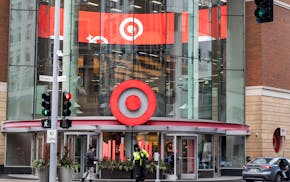Leading up to the holidays and even after, readers called the Star Tribune again and again with one question: What's going on with the mail?
People were going days, even more than a week, without getting delivery late last year. Some Minnesotans in Congress started pushing for answers from the very top of the U.S. Postal Service.
Meanwhile, Minnesotans like Bobbi Palmiter of Richfield did their own digging, starting with their carriers and the clerks they routinely see in their local post office branches.
"They all mentioned staffing," Palmiter told me earlier this month.
It's always been a hard place to work. The postal system is a perpetual motion machine. It's the ocean. A wave lands, and the next one is right behind. It takes exceptional dedication to work in that environment.
During the pandemic, postal loads increased because more people ordered food and other products for home delivery. Now, with the retirements of baby boomers and other constraints in the labor force, an already tough place to work is having an even tougher time finding workers.
Today, nearly all USPS branches and vehicles sport hiring signs. There are job fairs at post office branches monthly in the Twin Cities and many smaller Minnesota towns.
Nationally, the Postal Service and National Association of Letter Carriers are in talks for a three-year contract to replace the one that expires May 20. Union president Brian Renfroe began the talks in February by saying, "Letter carriers are working harder and longer hours than at any point in history."
For years, going back to before the pandemic even, carriers have started the day knowing they may have to take "mandatory overtime" if routes at their branch are not completed. From 2014 to 2019, overtime costs soared 35% for USPS, according to a report by the Postal Service's Office of the Inspector General (OIG).
Though overtime declined at the system in 2021, it seems to have risen again last year, carriers and union officials say. The postal service OIG hasn't released 2022 data yet.
The carriers' contract says they're not supposed to work more than 12 hours a day and 60 hours a week, but a Minneapolis letter carrier told me they sometimes go past that to get mail out. This winter, I saw carriers in my west metro neighborhood as late as 9 p.m., their way lit by LED lights on their knit caps.
"If someone calls in sick, that route has to wait until the next day," the Minneapolis carrier said. Carriers hate to do that, she said, calling it "leaving mail on the floor." She asked not to be quoted by name, saying she worried about being reprimanded by both the post office and union.
A union spokesman in Washington also declined to talk on the record, saying the labor shortage is a sensitive issue for all parties.
The Postal Service's spokesperson for the Twin Cities was out this past week. A spokeswoman at a regional office in Kentucky declined to answer specific questions. However, she did say the system is looking for 222 carriers in Minneapolis, where it now has 1,080, and 117 in St. Paul, where it has 640.
That means, in both cities, about 1 out of 6 carrier positions is unfilled.
While the carriers' union is pressing for higher pay during the current labor talks, the carrier in Minneapolis said she thinks other issues need to be considered. For instance, she said that, because of all the overtime, the job has become unworkable for single parents. It starts too early and ends long after kids return from school.
The climb to the highest pay grade also takes too long, the carrier said. It takes 13 years to reach top pay grade, which is now $75,300.
Meanwhile, one reason for delivery delays in the Twin Cities is that a relocation perk for carriers has gone awry.
If a carrier lives in Bloomington but works in Eagan, he or she can watch for openings in Bloomington and bid on a seniority basis for a chance to work closer to home.
But these days, if there are too many openings at a branch, that's a sure sign that the people working are constantly facing forced overtime. So no one applies to work there.
A vicious spiral has started in some branches, with veterans leaving the emptier branches to those where the staffing level is high and overtime work is low. "Everybody with seniority gets the heck out of Dodge," the Minneapolis carrier said.
Mail volume turns lower in spring and summer, and some of the workload is now easing on postal workers. Palmiter said that on her Richfield block, "It looks like there is a recovery going on."
George Sundstrom, who complained about intermittent deliveries to me in January, had just finished chipping ice at his place on the Old North Shore Road northeast of Duluth when I reached him again before last week's warmup. "I haven't had any problems at all lately with the mail delivery," he said.
A week ago Saturday, the mail carrier stopped by my house just as I finished dinner.
It was 7:22 p.m.

Ramstad: Gov. Walz, things are not getting done in Minnesota

Ramstad: AI is English-centric, but it's picking up Hmong quickly

Ramstad: Minneapolis' Camden neighborhood is rising. Houston White wants to keep it that way.

Ramstad: Minnesota's big businesses are in crisis with a common problem


![The former RyCrisp building that is now a workplace for 120 mostly millennial workers on Monday, November 27, 2017. ] RENEE JONES SCHNEIDER ¥ renee.j](https://arc.stimg.co/startribunemedia/DH6RCFXK2672S2B3W2UUFCILIQ.jpg?w=600&h=600&auto=format%2Ccompress&cs=tinysrgb)